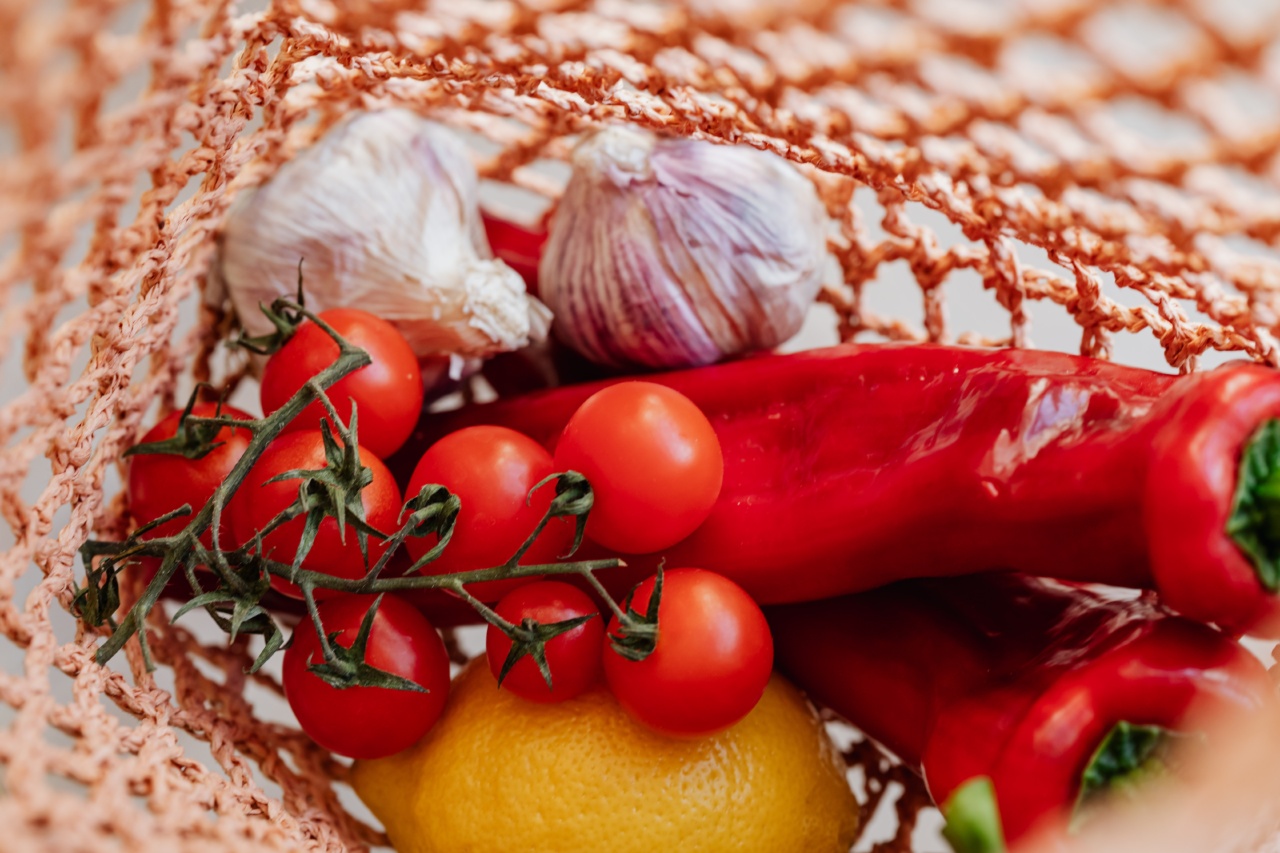Inflammation is the body’s natural response to protect itself from harm. It is a vital part of our immune system, responsible for repairing and healing damaged tissues.
However, chronic inflammation can be harmful and is associated with various health problems, including digestive issues.
One way to support digestion and reduce inflammation is through incorporating a fiery mix of spices into your diet. These spices not only add flavor and depth to your meals but also offer numerous health benefits.
Let’s explore some of these fiery spices and how they can boost digestion while reducing inflammation.
1. Turmeric
Turmeric, the golden spice, is widely known for its potent anti-inflammatory properties. Curcumin, the active compound in turmeric, has been extensively studied for its ability to inhibit inflammation in the body.
It helps reduce the production of inflammatory markers and promotes the production of anti-inflammatory compounds.
Additionally, turmeric aids digestion by stimulating the production of bile, which is necessary for the breakdown and absorption of fats.
It also helps relieve symptoms of indigestion and bloating, making it a valuable spice for overall digestive health.
2. Ginger
Ginger, another powerful anti-inflammatory spice, has been used for centuries to aid digestion and reduce inflammation.
It contains gingerol, a compound that has been shown to have anti-inflammatory effects similar to nonsteroidal anti-inflammatory drugs (NSAIDs).
Ginger also helps improve digestion by increasing the production of digestive enzymes, reducing gastric contractions, and preventing bloating and cramping. It can be consumed in various forms, such as fresh ginger, ginger tea, or as a spice in recipes.
3. Cinnamon
Cinnamon is not only a delicious spice but also a natural anti-inflammatory agent. It contains several antioxidants that help reduce inflammation and can be beneficial for people with digestive disorders like irritable bowel syndrome (IBS).
This spice also aids digestion by increasing the production of digestive enzymes and reducing the risk of bacterial infections in the digestive tract.
Cinnamon can be sprinkled on oatmeal, added to smoothies, or used in baking to enjoy its flavors and health benefits.
4. Cayenne Pepper
Cayenne pepper is well-known for its fiery heat, and it can also kick-start digestion and reduce inflammation. Capsaicin, the active component in cayenne pepper, has anti-inflammatory properties and helps alleviate pain associated with inflammation.
Furthermore, cayenne pepper improves digestion by stimulating the production of saliva, increasing gastric acid secretion, and enhancing digestive enzyme activity.
It can be used in small amounts to add a spicy kick to dishes and provide its digestive benefits.
5. Black Pepper
Black pepper is a commonly used spice worldwide and offers more than just taste. It contains a compound called piperine, which has anti-inflammatory effects and enhances nutrient absorption.
Black pepper can aid digestion by increasing the secretion of hydrochloric acid in the stomach, which aids in the breakdown of food. It also stimulates pancreatic enzymes and bile production, promoting effective digestion.
6. Cumin
Cumin is an aromatic spice that is frequently used in Indian, Middle Eastern, and Mexican cuisines. It has anti-inflammatory properties and can help soothe digestive discomfort.
By stimulating the production of digestive enzymes, cumin aids in the breakdown of carbohydrates, fats, and proteins. It also enhances nutrient absorption and reduces bloating.
Adding cumin to your meals not only adds a warm and earthy flavor but also supports digestion.
7. Garlic
Garlic is renowned for its numerous health benefits, including its ability to reduce inflammation and support digestion. It contains sulfur compounds that have potent anti-inflammatory properties.
Garlic can aid digestion by stimulating the production of gastric juices, which help break down food and improve nutrient absorption.
It also acts as a prebiotic, promoting the growth of beneficial gut bacteria, which is crucial for a healthy digestive system.
8. Fennel
Fennel seeds have been traditionally used as a digestive aid due to their carminative properties, helping relieve digestive discomfort and bloating.
These seeds can reduce inflammation in the digestive tract and promote the elimination of gas, alleviating symptoms of indigestion and bloating. Fennel can be consumed as a digestive tea, added to meals, or chewed on its own to support digestion.
9. Cardamom
Cardamom is a fragrant spice widely used in Indian cuisine and known for its ability to soothe the digestive system.
It aids digestion by increasing the production of digestive enzymes, reducing muscle spasms in the digestive tract, and relieving gas and bloating. Cardamom can be added to both sweet and savory dishes or brewed as a digestive tea.
10. Cloves
Cloves have been used for centuries to improve digestion and reduce inflammation. They contain eugenol, a compound with anti-inflammatory and antioxidant properties.
Cloves support digestion by promoting the secretion of digestive enzymes, reducing gastric irritations, and relieving symptoms of bloating and indigestion. They can be added to dishes, teas, or used as a spice in baking.
Conclusion
Incorporating a fiery mix of spices into your diet can provide a range of benefits for digestion and inflammation.
Turmeric, ginger, cinnamon, cayenne pepper, black pepper, cumin, garlic, fennel, cardamom, and cloves all boast anti-inflammatory properties and can support a healthy digestive system.
Remember to start with small amounts of these spices and gradually increase their usage to assess your tolerance. Consult with a healthcare professional if you have any underlying health conditions or concerns.
Embrace the power of these fiery spices and spice up your meals while promoting digestive wellness.






























